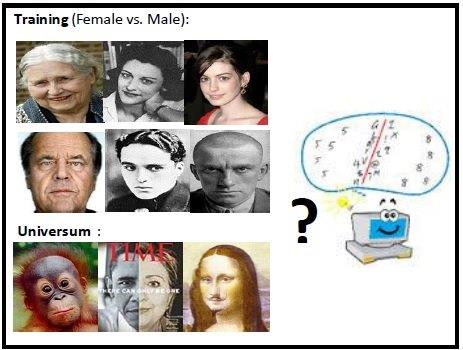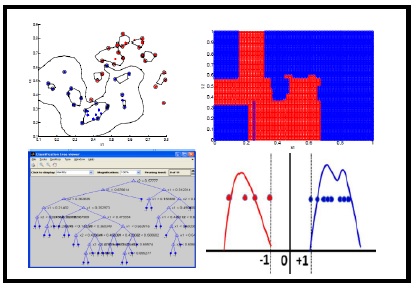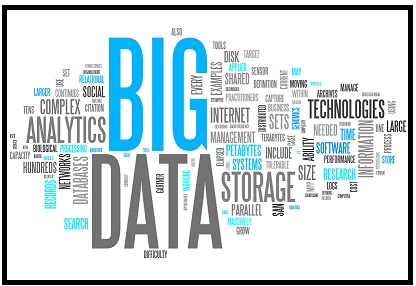Research Career
Work Experience
LG Electronics (Feb 2018 - Current) Position AI Technical Lead.
Robert Bosch LLC
(Jan 2016 - Jan 2018): Senior Research Scientist.
(Dec 2013 - Jan 2016): Research Scientist.
(May 2013 - Sept 2013): Research Intern.University of Minnesota (Aug 2008 - Dec 2013) Position: Research Assistant/Teaching Assistant.
Wipro Technologies (June 2006 - May 2008) Position: Software Engineer (Java/ Unix).
Mentored Internships
I had the chance to interact with brilliant and wonderful researchers during the last 8 years of my career. Check out their work below!
Congrui Yi (Summer 2014). (Current Position: Applied Scientist at Amazon)
Vikas Bhetanabhotla (Summer 2015) (Current Position: SW Engg. at Cloud Security)
Julian Walbrecht (Fall 2015) (Current Position: Connected Industry SW Engg.)
Goutham Kamath (Summer 2016) (Current Position: Research Scientist at Foghorn Systems)
Youngsuk Park (Summer 2017) (Current Position: AWS AI Labs)
Bernardo Torres (Summer 2017) (Current Position: PhD at UCSC)
Other Professional Activities
Associate Editor of Neural Processing Letters (2016-current)
Program Committee: KDD (2016 - 2020), SDM 2018, ICMLA (2016 - 2020), HIS 2017, Baylearn 2017, ICPRAI 2018.
Reviewer for Neural Networks, Pattern Recognition, Neurocomputing, PLoS ONE, Neural Processing Letters, IEEE Systems Man and Cybernetics
Reviewer for International Joint Conference on Neural Networks (IJCNN 2009-2016), NIPS 2016.
Current Projects
Learning on Edge Devices (On Device Learning, TinyML)
 |
With the increase in number of smart devices and the compute power on these devices; there is interest in performing model training on the edge devices. In this research we analyze the current landscape of the edge learning technology and develop new methods to enable model training with reduced resource (memory, compute, energy) footprint. Selected Publications:
|
Deep Learning Hyperparameter (AutoML) and Model Optimization.
 |
The success of any machine learning (including deep-learning) algorithm depends on careful tuning of its hyperparameters. However hyperparameter tuning is a non-trivial problem and has been a topic of research for several decades. In this research we develop advanced Hyperparameter optimization algorithms which provides significant speed-ups compared to existing state-of-art algorithms. A part of this research also focus on advanced optimization strategies for Deep Learning.
|
Generative Adversarial Networks (GANS)
Coming Soon!
Learning from Contradictions (Universum Learning)
 |
The technique of Universum learning provides a formal mechanism for incorporating a priori knowledge about the application domain, in the form of additional Universum samples. Universum learning has been originally introduced for binary classification (by Vapnik) and works specifically well for limited data settings. In this project we formalize Universum Learning to newer learning problems like, regression, multi-class, single-class (anomaly) detection etc. Selected Publications:
|
Past Projects
Explainable AI Models
 |
Many machine learning applications involve predictive data-analytic modeling using black-box techniques. A common problem in such studies is understanding/interpretation of the estimated models. This project analyzes the current techniques for visualization and interpretation of black-box models and their applicability under VC-theoretic framework. Selected Publications:
|
Big Data and Scalable ML algorithms (at BOSCH Research)
 |
With the advent of big-data many data-mining applications involves analyzing huge amount of data (e.g millions of records and or thousands of variables) and derive insights from it. This necessiates research in large-scale data analysis systems and algorithms. In this project we analyze and extend newer optimization algorithms (as scale) on existing big-data frameworks. The outcome of this research will provide tools for building scalable ML algorithms suitable for deriving insights from big-data. Selected Publications:
|
Use-Case Research (at BOSCH Research)
 |
As a member of the Data Science Team we are involved in various projects towards deriving insights from the data available in various domains such as., Automotive, Manufacturing, HealthCare, ThermoTechnology etc. A successful project life-cycle spans from requirements gathering to deployment. Selected Publications:
|
Statistical Analysis of the Soil Chemical Survey Data (with MNDoT)
 |
This project describes the data-analytic modeling of the Minnesota soil chemical data produced by the 2001 metro soil survey and by the 2003 state-wide survey. The chemical composition of the soil is characterized by the concentration of many metal and non-metal constituents, resulting in high-dimensional data. This high dimensionality and possible unknown (nonlinear) correlations in the data make it difficult to analyze and interpret using standard statistical techniques. This project applies a machine learning technique, called Self Organizing Map (SOM), to present the high-dimensional soil data in a 2D format suitable for human understanding and interpretation. This SOM representation enables analysis of the soil chemical concentration trends within the metro area and in the state of Minnesota. These trends are important for various Minnesota regulatory agencies concerned with the concentration of polluting chemical elements due to both (a) human activities, i.e., different industrial land usage, and (b) natural geological factors, such as the geomorphic codes and provenance of glacial sediments Selected Publications:
|
Other (Minor) Projects / Course Projects
Discriminative Feature selection for Remote Homology detection using sparse coding
Practical Conditions for Effectiveness of the Universum Learning
A Novel Framework for Classification using Regression routines
Practical Conditions for Effectiveness of the Universum Learning
Practical Conditions for Effectiveness of the Universum Learning
Disclaimer: The views and opinions expressed in this website are strictly those of the site's author.